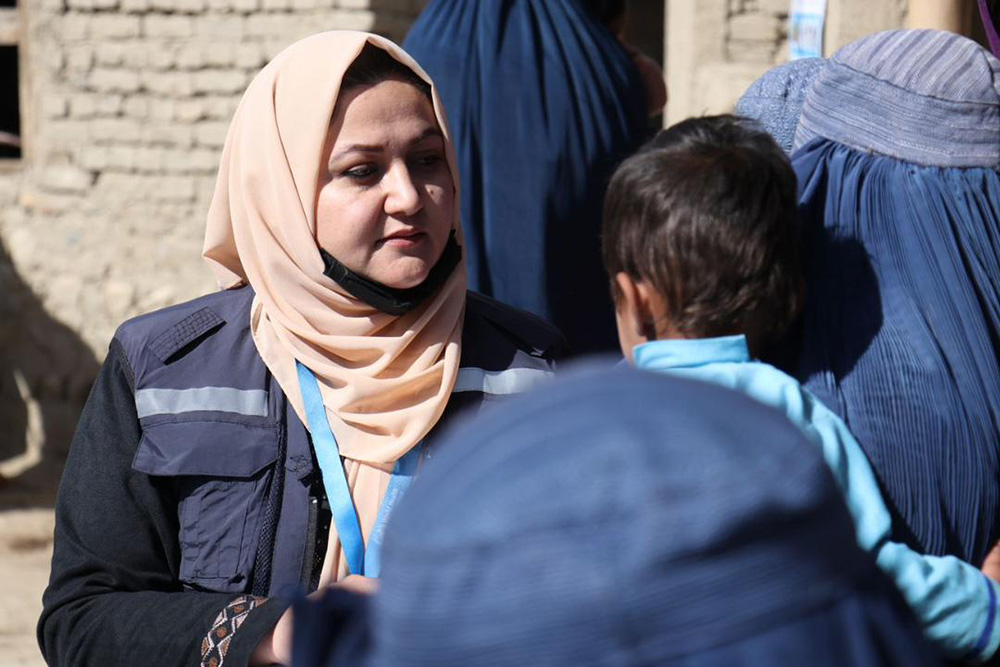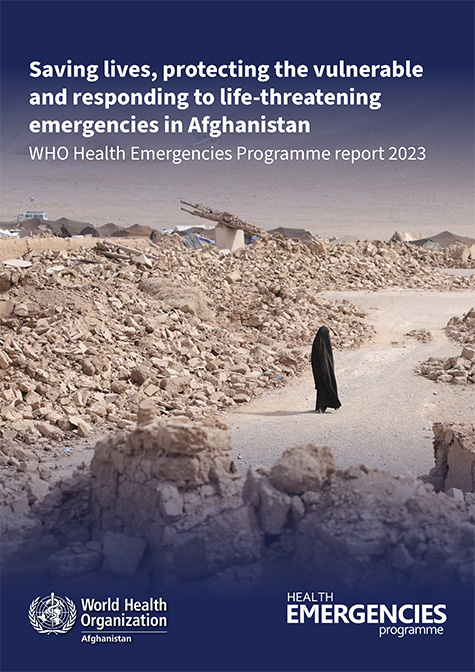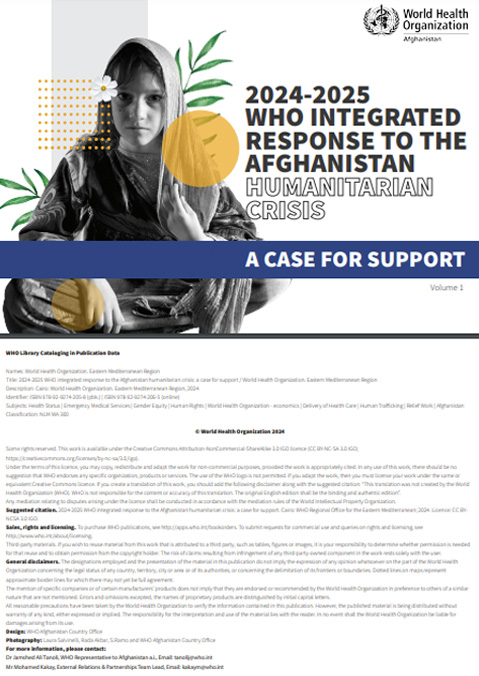
11 March 2024 – Dr Noshin Guhar Karimi is WHO Health Emergencies Programme (WHE) Officer in Badakhshan province, northeast Afghanistan. She has been working with WHO for more than a year to support implementation of WHO initiatives in Badakhshan, her native province, and promote inclusion. For International Women’s Day, she shared her touching story of dedication, challenges and resilience.
Every morning, I wake up hoping that I can do more to support Afghan women and children and make health services as inclusive as possible. I continue to work tirelessly, despite challenges and obstacles, to ensure that women and girls in my province have access to health services. I see their problems every day and try to address their concerns as much as I can. I listen to their stories, hear their problems, empathize with them, educate them on health topics and refer their concerns to the relevant health authorities.
But all this is not easy. It requires courage, bravery, resilience and sacrifices. My work involves many potential risks as well, especially in the current context of Afghanistan.
Working in Afghanistan has never been trouble-free for women. With recent restrictions on women and girls, my work has become more challenging, as it has for many other working women. But because I work in the health sector, I have relative freedom in my work.
My ultimate goal is to reduce morbidity and mortality among vulnerable mothers and children of Badakhshan. To achieve this, I have been working in the health sector for more than 10 years and have supported the establishment of several health centres across the remote province.
Badakhshan is one of the hardest-to-reach provinces in northeast Afghanistan. Thirteen of its 28 districts are cut off from the centre of the province for 8 months of the year due to heavy snowfall, leaving people unable to travel for medical care. About 30% of the province is still underserved areas, with little access to basic health services. Residents of some villages take 5 to 7 hours to reach the nearest health centre, owing to lack of transportation facilities.
Poverty, lack of education and lack of awareness about health issues are very common among most people in Badakhshan.
As part of WHO, I have had great opportunities to assist women, girls and children in Badakhshan, thanks to the continuous support of my colleagues and supervisors. I am optimistic that together with other colleagues and health professionals, we will make good progress in realizing our goals to provide better health services to the people of the province.
As a female humanitarian, I try to do more for the Afghan women beyond my role as a WHE officer. I use every opportunity to improve awareness about health issues among women and girls. I educate them on specific health problems related to women. I hold regular meetings with women in health facilities and in the community to understand their problems and look for possible solutions. I raise awareness about rights among women and girls. All this has helped me to be a friend and a supporter to the women in my province. They feel comfortable around me and share their concerns with me.
I consistently receive warm appreciation from women during my visits to health facilities and communities. In communities and among activists in Badakhshan, I am referred to as the “female hero” because of the services and support I provide. Within WHO, my work is acknowledged, and I have always received the required support.
I will continue to overcome challenges and serve the women, girls, children and men of my province with dedication and resilience.
On International Women’s Day and every day, I voice my admiration for the unmatched strength of the Afghan women and girls. I sincerely hope their situation improves soon and they have equal access to their rights, including the rights to education, health care and work.













